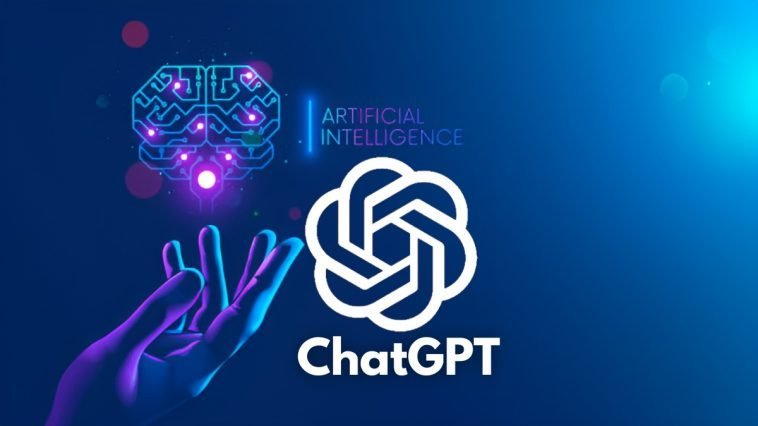Introduction.
If you’ve ever thought about writing a novel but felt daunted by the long process, ChatGPT could be just the help you need.
From brainstorming fresh plot ideas to fleshing out characters and even fine-tuning your writing, AI can make the journey to writing a novel smoother and sometimes even faster.
I’ll break down exactly how you can use ChatGPT to enhance your novel-writing process and answer some questions you might have along the way.
How Do I Write a Novel With ChatGPT?
Step 1: Brainstorming Your Novel’s Concept.
Starting with an engaging premise is essential for any novel, but it can be challenging to come up with unique ideas.
ChatGPT can help generate concepts based on prompts you provide or even refine an idea you already have in mind.
Just feed it a theme or a few ideas, and it can generate everything from potential story arcs to character motivations.
For example, let’s say you want to write a fantasy novel; you can ask ChatGPT for a list of unique fantasy settings or magical systems, and it can create a list of ideas in seconds.
Step 2: Developing Plot and Structure.
Once you have a basic idea, the next step is to work on the plot. ChatGPT can assist by suggesting potential plot points and character arcs.
One effective approach is to input a summary of the story’s beginning and desired ending, and ChatGPT can help fill in the gaps with potential middle sections.
This can be particularly useful if you’re tackling a more complex structure, like parallel storylines or time jumps.
Another popular method involves the classic three-act structure. You can ask ChatGPT for suggestions on how to set up Act 1, ramp up the conflict in Act 2, and resolve everything in Act 3. For example:
- Act 1: Introduce the main character and their world, setting up initial challenges.
- Act 2: Create rising tension, with obstacles or mysteries unfolding.
- Act 3: Bring it all together in a satisfying resolution.
ChatGPT’s prompts can give a clear, organized outline you can use as the backbone of your novel.
Step 3: Crafting Compelling Characters.
Character development is crucial, and ChatGPT can help you create personalities, backstories, and motivations for each of your characters.
You can ask it to help flesh out a character’s flaws, strengths, or even small quirks that make them memorable.
For example, if your main character is a detective with a troubled past, ChatGPT can suggest different aspects of that past and how they might influence their current actions.
Using ChatGPT to create character dialogues is another fantastic option. You can experiment with conversations between characters and adjust their tone, pacing, and personality traits until you find the voice that best fits your novel.
Step 4: Drafting the Story.
Now comes the most daunting part—writing the draft. With ChatGPT, you can tackle this step one section at a time.
Begin by typing out a rough scene description, then ask ChatGPT to elaborate or refine it. It can suggest alternate phrasings or ways to increase the tension and keep readers engaged.
Many writers also find it helpful for drafting dialogues or detailed descriptions. However, it’s best to remember that while AI can assist in the drafting phase, the ultimate voice and style should be yours.
Step 5: Editing and Refining.
Once you have a draft, ChatGPT can be incredibly helpful for the editing process. You can ask it to find and rewrite repetitive phrases, improve pacing, or suggest alternate word choices.
For grammar checks and sentence-level refinements, consider using ChatGPT alongside tools like Grammarly for maximum clarity and polish.
Pros and Cons of Using ChatGPT for Novel Writing
Pros
- Efficient Brainstorming: Helps overcome writer’s block by generating ideas quickly.
- Flexible Outlining: Assists with structured outlines, making the plot easier to follow.
- Character Development: Offers creative character backstories and dialogue ideas.
- Draft Assistance: Provides sentence structure options and scene descriptions.
Cons
- Lack of Original Voice: Over-reliance can lead to a lack of personal style or voice.
- Repetition: Sometimes repeats phrases or structures if not carefully monitored.
- No Emotional Nuance: AI may lack the depth to understand complex emotions fully, requiring manual adjustments to capture a more human touch.
Frequently Asked Questions
Q: Is using ChatGPT for novel writing considered “cheating”? A: Not at all. Think of it as a writing tool, similar to spell-check or a thesaurus. While ChatGPT can assist with certain tasks, the final decisions, voice, and story direction are still in your hands.
Q: How much can I rely on ChatGPT for the drafting process? A: ChatGPT is best for brainstorming, outlining, and generating ideas rather than writing entire sections. Using it for initial drafts of dialogues or scene descriptions can be helpful, but it’s wise to review and refine these to match your style.
Q: Can ChatGPT handle complex genres like historical fiction or sci-fi? A: Yes, ChatGPT can suggest ideas and language for various genres, including those requiring detailed research or specialized language. However, for historical accuracy or highly technical sci-fi, you’ll need to verify the facts independently, as AI doesn’t always get every detail correct.
Q: Do I still need an editor if I use ChatGPT for refining my writing? A: Yes, having a professional editor is recommended if you’re aiming for a high-quality, polished novel. While ChatGPT can help catch errors and suggest improvements, a human editor will bring nuance, perspective, and professional expertise.
Conclusion
ChatGPT can be an invaluable partner in your novel-writing journey, assisting with everything from brainstorming to editing. While it can’t replace your unique voice and perspective, it’s a powerful tool that can speed up the process and make it less intimidating. So, are you ready to dive into your next novel with the help of ChatGPT?





GIPHY App Key not set. Please check settings